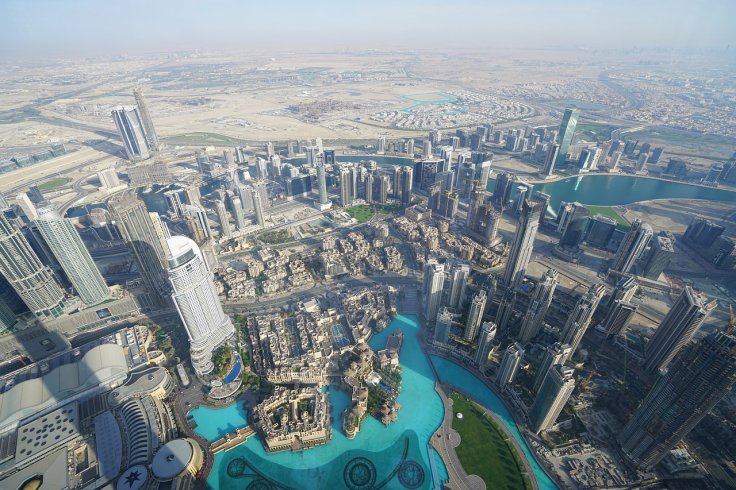All countries in the world are doing their best to contain the coronavirus epidemic and mitigate the suffering of the people. There's a universal acceptance that all residents must be protected and supported amid the deadly contagion, not just the citizens. And then there are some exceptions, unfortunately.
The way the United Arab Emirates (UAE) pressured its expatriate work forces to go to their native countries at this difficult point in time was baffling. The earnestness with which the UAE authorities encouraged foreign governments to evacuate their citizens was bemusing to watch initially. When they went ahead to say foreign countries would be penalised if they did not expedite the evacuation, it really rankled nerves.
Unbelievably, UAE even said expatriate workers who lost jobs or were asked to go on leave should be repatriated by their respective countries.
On Sunday, Bloomberg reported that the Emirates government was planning to impose curbs on work quotas for countries which were not bailing out their citizens living and working in the Gulf nation. UAE's ministry of human resources and emiratisation was considering a suspension of memorandum of understanding with some of these countries, it was reported.

The targeted countries are mostly the Asian nations like India, Pakistan, Bangladesh, Philippines and Sri Lanka that export workforce to the oil rich gulf nation. The Emirates, which was built on the sweat and blood of generations of workers from these countries, stunned the residents with this announcement.
Of course, the UAE government is not ordering an evacuation; it says foreign governments must bail out the workers who want to return to their respective countries. But the underlying message is not comforting.
#UAENationBrand - walk the talk, rather
The move came just days after the government released an advertisement video praising itself over the battle against Covid-19. The video titled 'Can 10 million people trust a country?' waxed eloquent on the #UAENationBrand. Some of the lofty statements in the video go like this:
"To trust means being there not just during your best days, but there during your darkest,"
"This is the country where we have built our dreams. Our hopes. Our life. This is the place we belong. This is where we feel safe."
"At a time when the world is facing the biggest challenge in many generations, the UAE has been strong and authoritative in its bid to protect all its citizens."
The beautiful script goes on and on like this but it just rings hollow and sanctimonious.
A towering promise of trust rings hollow?
Why can't the UAE live up to its towering promise of trust? Is it a dearth of funds that deter the authorities? Or medical and physical facilities? Or, is the country crumbling under the pandemic? None of this appears true. When UAE toughened its stance over expat workers, the total number of coronavirus cases was a little more than 3,000.
UAE was not overwhelmed by an explosive rise in infections. Even if it was, it was still better placed to take care of the expatriate workers than the impoverished countries from where they came from. With its financial muscle, UAE could easily support the manual labourers who went out of work during the lockdown. What was the hurry to send them back home?
Where does UAE stand in terms of per capita income?
According to the World Bank, UAE's per capita income in 2018 was $75,440. That compares with $7,680 in India, $5860 in Pakistan, $4570 in Bangladesh, $13110 in Sri Lanka and $10740 in the Philippines.
The UAE could have taken a look at how the Indian state of Kerala has been taking care of its own share of migrant labourers. Kerala has laid out an efficient support network for three million immigrant workers in the state. No one is asking them to trudge back to their homes in the north amid the lockdown.
Much better placed to deal with pandemic
If the UAE authorities took a neat look at the demographics of their country, they would have felt more reassurance. Only a meagre 1.5 percent of UAE's nearly 10 million-strong population falls in the high risk category of people aged more than 65 years. The pattern of death and serious complications from coronavirus shows that mostly only elderly people require serious hospital time if they get infected. Even if you put people above 55 into this high-risk category, they only account for only 7.2 percent of the population of the UAE.
The Emirati population of UAE consists of only 11 percent. Indians account for 27 percent of the population, or 2.7 million people. While Pakistanis account for 12.7 percent, Filipinos are 5.5. percent and Egyptians 4.2 percent. People from other countries make up 38 percent of the population.
These people -- generations of them -- built the modern, glitzy UAE. They are construction workers, skilled and semi-skilled workers, nurses, teachers, IT professionals, oil rig workers, maids, servants and drivers. Earn their trust, UAE, during the testing times.








